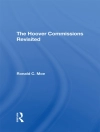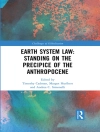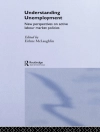Analyzes the Israel-Palestinian conflict by looking at its interactions with seven regional and global powers and the way the conflict is framed at the international level.
2021 CHOICE Outstanding Academic Title
Despite decades of international diplomatic efforts, a solution to the Israel-Palestinian conflict is still as elusive as ever, forcing us to ask the question: have global and regional powers, rather than helping to solve the conflict, actually led to its perpetuation? This book explores this question from a post-Eurocentric perspective. Departing from the literature that sees the United States, Europe, and Russia as outside diplomatic actors, and regional powers such as Egypt, Iran, Saudi Arabia, and Turkey as part of the conflict, Daniela Huber instead conceptualizes all of them as actors in the regional/international dimension of the conflict, which they (re)produce through their role performances. Anchored in grounded theory and critical discourse analysis, she examines the scripts that have been performed by these powers at the United Nations and how the authoritative international framing of the conflict has evolved in the UN Security Council and General Assembly, identifying periods of continuity and ruptures in these scripts, as well as alternatives to them.
Mục lục
List of Illustrations
Abbreviations
Acknowledgments
Introduction
1. The State of the Art and a New Conceptualization of the Conflict
2. Theoretical Background: Roles, Meanings, and Scripts
3. Methodology
4. Categories and Key Concepts in the Representation of the Palestine/Israel Question at the UN
5. Continuities and Ruptures in the Role Representations of the Seven Powers
6. The Authoritative International Normative Framing of the Conflict
Conclusions
Notes
References
Index
Giới thiệu về tác giả
Daniela Huber is Head of the Middle East and Mediterranean Department at the Istituto Affari Internazionali (IAI) and teaches at Roma Tre University, both in Rome, Italy. Her books include Democracy Promotion and Foreign Policy: Identity and Interests in US, EU and Non-Western Democracies.












